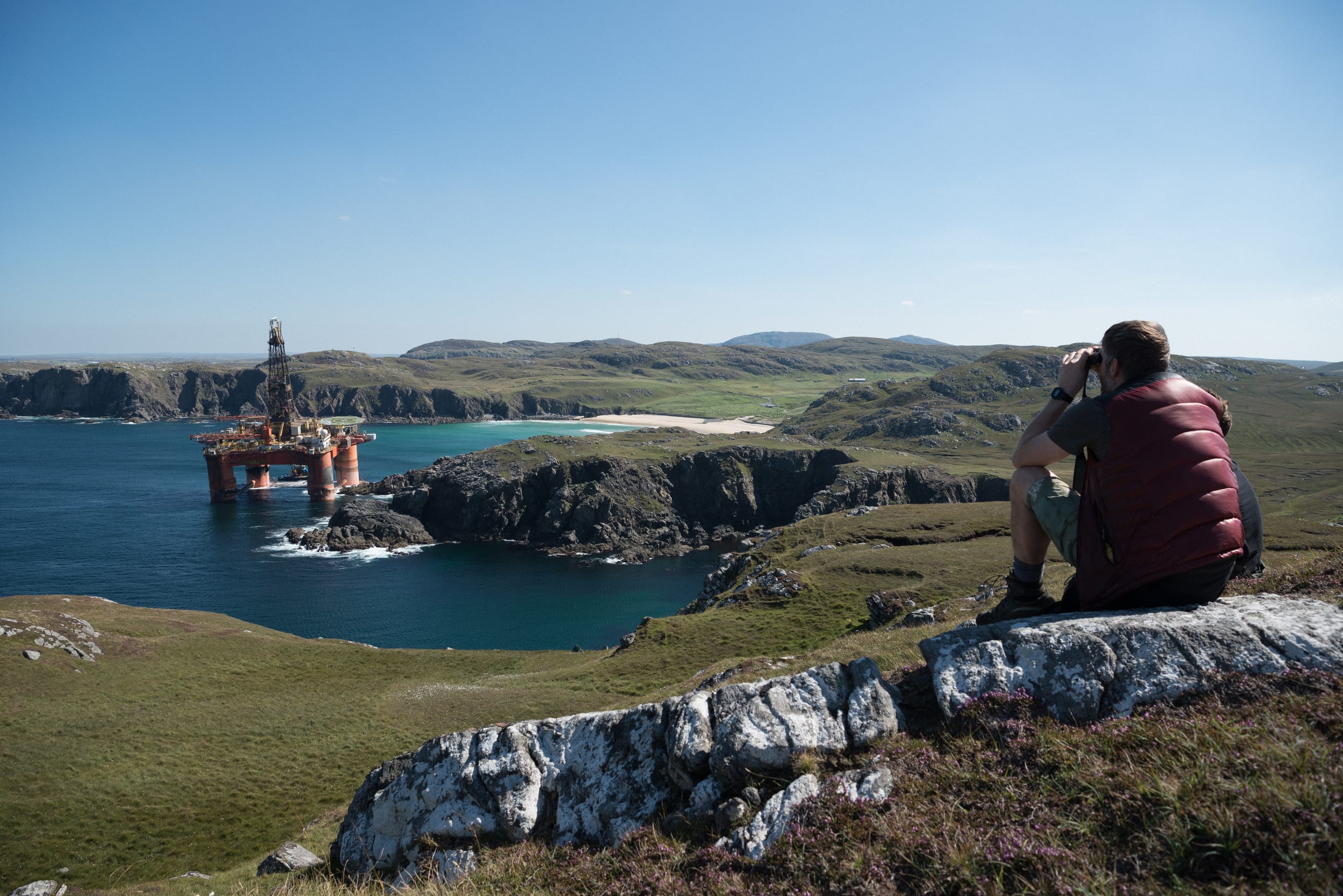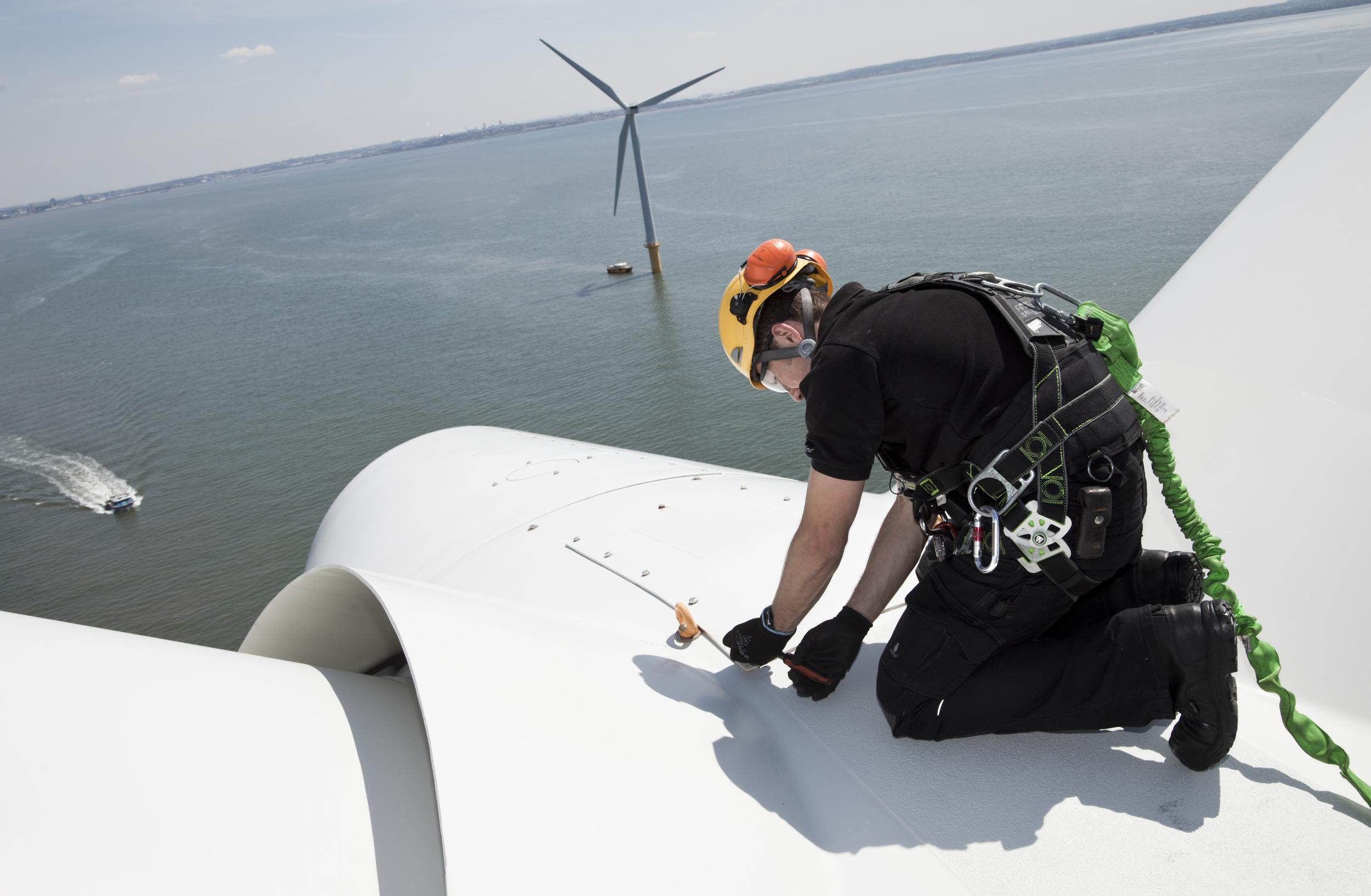This week, something historic happened. For the first time ever, the price of oil dropped below zero in the US.
Because we’re all using less oil under lockdown, by driving less and taking fewer flights, the companies producing oil in the US are having to pay for people to take the stuff off their hands. There’s such a glut of oil right now, rigs are sitting idle in the North Sea, and tankers are being called in to store oil, rather than it being burned for fuel.
After nearly a decade of calling for dirty oil companies to ‘leave it in the ground’, that might seem like a good thing to do right now.
But it’s not that simple.
Oil: a risky business
The Covid-19 crisis has meant that from the North Sea to south Texas, workers are worried for their livelihoods. For them, the oil market is unpredictable, and risky to rely on. The recent oil price crash has given them even more to worry about, which is really tough at a time like this.

The semi-submersible 17,000-tonne oil rig, Transocean Winner, ran aground on the Isle of Lewis, Scotland in 2016. © Johnny Barrington / Greenpeace
And it might seem that this moment is just part of the boom and bust cycle of the oil markets. But, in reality, it’s a preview of what’s to come. We know that as the climate emergency catches up with us, these kinds of crashes in the oil market – and more widely across the economy – will be more and more common.
Experts have been warning for years that fossil fuels are a risky business, and now reality is starting to hit. Once we start to emerge from the Covid-19 crisis, the climate crisis will still be with us. And to properly tackle the climate crisis, the world will have no choice but to use less oil and more renewable energy. There is no sign of brighter times for the oil industry.
What should the government do?
The UK government is under enormous pressure at the moment to steer us through this pandemic. As well as tackling the health challenges, they need to support our economy through bailouts, as many industries have had to slow down or stop altogether during lockdown.
But it’s vital that the government’s response to the Covid-19 crisis doesn’t make the climate crisis worse. Our solutions now mustn’t mean workers are facing the same risks and uncertainties when the next shocks of the climate crisis hit.

Wind Turbine Technician Dan Simmons working on the offshore windfarm at Burbo Bank in the Irish Sea. © Paul Langrock / Zenit / Greenpeace
The best support we can give to workers and families who depend on the fossil fuel industry right now is to offer them a way out. That means beginning a just transition to renewable energy – with job retraining opportunities, guaranteed pensions and benefits, wage insurance, and stronger unions.
For a resilient climate-proof economy, we cannot drill for oil that costs us money to store and that we can’t afford to burn without trashing the climate. Drilling for new oil and gas must stop.
Instead, the chancellor Rishi Sunak needs to act with both intelligence and compassion, and to steer the oil industry through a just transition to renewable energy.



